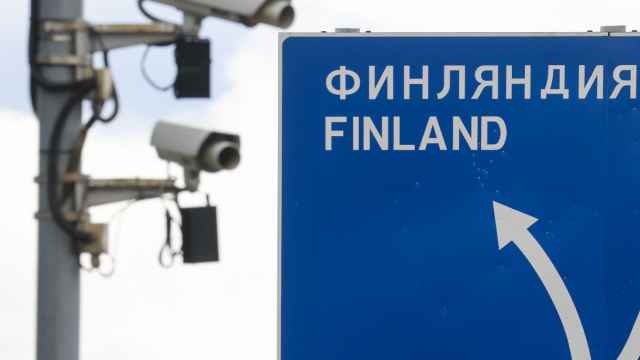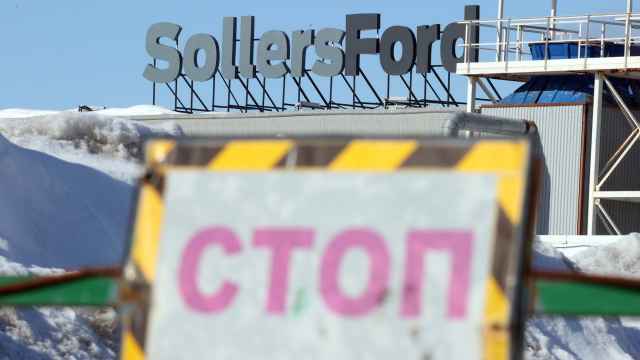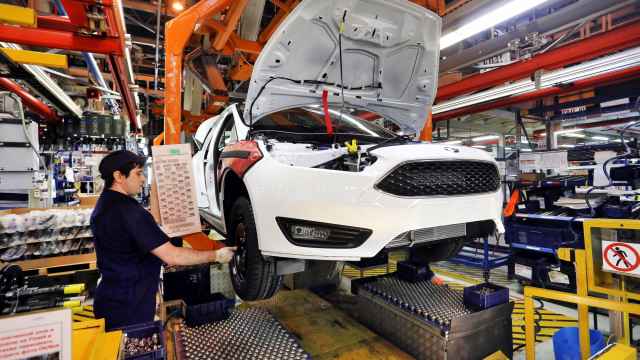The Russian car market is braced for a turbulent year ahead, as a leading business association warns sales are likely to drop and more manufacturers could give up on Russia altogether.
Sales of new cars dropped by 2.3% in 2019 to around 1.76 million units, and will fall by a further 2.1% in 2020, the Association of European Businesses (AEB) forecast Tuesday.
A hoped-for revitalization in the market in the second half of 2019, following a hike in VAT which dented sales at the start of the year, “did not materialize,'' the group said. “For the current year, we expect similarly challenging market circumstances,” it added.
The annual fall came despite a mini-rebound in car sales during December, but head of Mazda in Russia, Joerg Schreiber, who chairs the AEB Automobile Manufacturers’ Committee, said this was due to seasonal effects.
Confidence in the industry remains “low,” Schreiber added, warning “the situation may not be sustainable for some market participants” to continue operating in Russia.
American giant Ford shut its doors in Russia mid-way through last year. Sales of Ford cars plunged 57% in 2019 to 17,700 units. Lada-maker AvtoVaz remained Russia’s largest carmaker and managed to increase sales by 1% despite the market slowdown. Sales of the Granta model — Russia’s most popular car — jumped 27%.
Following AvtoVaz, which controls more than a fifth of the market, the leading brands of car sales in Russia in 2019 were Kia, Renault, Hyundai and Toyota.
The market decline came despite heavy promotional and marketing activity by carmakers, with Schreiber stating that without more active support from the Russian government, there is little more the industry itself can do to boost sales.
In a message to the Russian government, the AEB criticized measures they say are hurting the industry — including protectionist regulations designed to localize the production of cars — and called for more “active government support.”
“The government is introducing non-tariff protections to support local production. But excessive localization makes it economically unfeasible to introduce the latest state-of-the-art technology,” Schreiber said.
AEB chief executive Frank Schauff added: “It is quite possible that regulations become tougher, and will no longer coincide with the interests of some market players. What’s interesting is the way the Russian government thinks about that. It says ‘well, alright then, let them go.’”
“It seems that the automobile industry somehow fell out of the government’s priorities in recent years. But citizens are interested in what kind of car choice they will have in five years, and what kind of car options there will be, or whether we will go back to having simply two or three manufacturers as there used to be.”
Other industry analysts expect the car market could have already reached its nadir, and predict stagnation rather than ongoing decline, in 2020.
“We note that AEB’s forecast for the market in 2020 is more conservative than our view,” said VTB Capital’s Vladimir Bespalov.
“We project that car and light commercial vehicle (LCV) sales will grow in low single digits in 2020 on the back of a fairly neutral macro backdrop, a relatively favorable base effect and government support. Overall, we believe that low consumer confidence remains the key roadblock to any significant acceleration of the car market in Russia,” he added.
Separate data released Tuesday showed that approval rates for car loans dropped from 51% to 44% in 2019, as tighter loan regulations designed to cool the borrowing market started to have an impact.
A Message from The Moscow Times:
Dear readers,
We are facing unprecedented challenges. Russia's Prosecutor General's Office has designated The Moscow Times as an "undesirable" organization, criminalizing our work and putting our staff at risk of prosecution. This follows our earlier unjust labeling as a "foreign agent."
These actions are direct attempts to silence independent journalism in Russia. The authorities claim our work "discredits the decisions of the Russian leadership." We see things differently: we strive to provide accurate, unbiased reporting on Russia.
We, the journalists of The Moscow Times, refuse to be silenced. But to continue our work, we need your help.
Your support, no matter how small, makes a world of difference. If you can, please support us monthly starting from just $2. It's quick to set up, and every contribution makes a significant impact.
By supporting The Moscow Times, you're defending open, independent journalism in the face of repression. Thank you for standing with us.
Remind me later.







